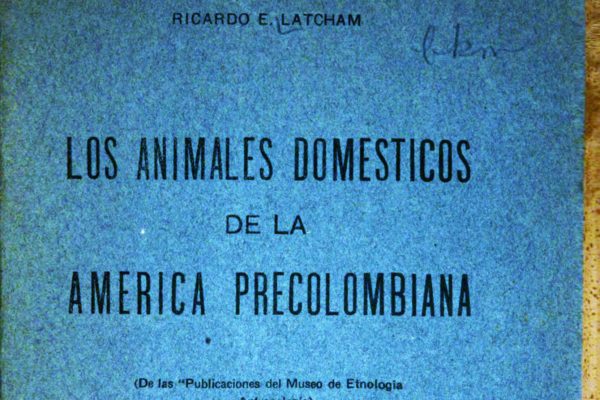AUSTIN, Texas — More than 500,000 books from the stacks of the Benson Latin American Collection, a trove of treasures related to Latin America, have been digitized and are now accessible online. The project is an extension of the University of Texas Libraries partnership with Google to digitize books and other literature to create a massive digital repository.
The HathiTrust Digital Library was established in 2008, built upon digital content from research libraries culled from the original Google Books project — in which the UT Libraries were a partner — and the Internet Archive initiative, along with content digitized through partner projects.
The volumes related to Latin American culture and history have been added to the HathiTrust Digital Library to be fully searchable online.
UT Libraries became a partner member of HathiTrust in 2014, and in doing so, provided to the university community access to the project’s repository of more than 14 million volumes gathered from more than 100 partner institutions.
To date, UT Libraries has gained access to more than 3.5 million digital public domain items contained in the digital library, allowing the university community to perform full-text searches of the complete HathiTrust catalog, download content that is in the public domain and create personal virtual libraries of electronic titles.
It also provides visually impaired users at member institutions full access to the entire digital library for use with assistive technology.
Lorraine Haricombe, vice provost and director of UT Libraries, said she sees the addition of the Benson materials as more evidence that the Libraries are delivering global impact.
For example, one volume from the Benson collection — “Los animales domésticos de la América precolombiana,” first published in Santiago, Chile, in 1922 — was digitized as part of the Google Books project, and once uploaded, became accessible to anyone with unimpeded access to the internet. Previously, the modest book printed on fragile newsprint may rarely have been touched during its nearly 100 years on the library shelves in Austin.
“The Libraries was informed by Google staff in one measured week that Ricardo Latcham’s little book — now fully searchable online — was accessed 3,421 times around the world,” Haricombe said. “This is the power of creating, preserving and making information freely accessible. Knowledge is able to reach the far corners of the globe and have a transformational effect on research and learning.”
The initial Google Books project was stymied by a series of lawsuits related to copyright that effectively embargoed much of the materials that were subject to the litigation, including about 600,000 volumes that had been selected and scanned from the Benson Collection to be included in the project.
HathiTrust was founded in October 2008 by the 13 universities of the Committee on Institutional Cooperation and the University of California to establish a repository to archive and share digitized collections. In light of the ongoing court proceedings, HathiTrust worked with partner institutions to secure access to the files digitized by the search giant for inclusion into the digital repository.
HathiTrust itself eventually became the target of a lawsuit by the Authors Guild, but an appellate decision by the Second Circuit Court in 2014 effectively settled all claims of fair use and secured the opportunity to add the Latin American materials that had been digitally preserved from the Benson collection.




